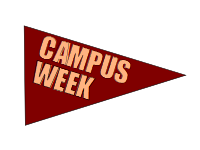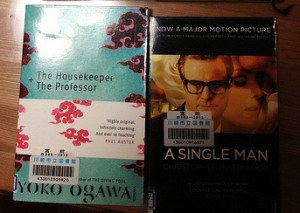

This week it’s Campus Week at Get Great English. I know the term hasn’t started yet but think of it as a little time to prepare before packing bags, unpacking, moving into halls of residence or a flat.
Reading for pleasure is usually different to reading for university. Reading for pleasure has no time limit, though if you have a great book it can seem like you have to read it quickly in case the world ends. You have to be strategic to read academically. Here are some academic reading strategies aimed at university students.
Get a pen and some paper
You are going to take some notes. Your memory is not enough. Take note of any vocabulary you do not know. Do not check it in the dictionary immediately. Also write down any interesting points with the author’s name, essay/text and which page(s) the interesting point was found upon.
If this is independent reading, read the title
The title is there to tell you if this is something relevant to your studies.
Don’t read beginning to end unless you have plenty of time
Most academic texts are not fun to read, in fact, they are boring. Your course may be interesting (hello, Media Studies students) but just wait until your first disappointment which will happen with the first trip to the university book shop or the library (in my case, a book called Television Hermeneutics).
Look for the key words for your research in the index, and look at the chapter titles and subheadings in the contents section to check if there are any full chapters that you ought to read. If your lecturer has recommended reading the whole book, there is a fast way to do this.
Get a quick summary of the text by reading the book toward the middle
- Essays
- Book chapters
- Journal articles or research papers
- Whole books
If you have an essay to read you should read the first paragraph (which works as the introduction) and the final paragraph (which serves as the conclusion) and scan the paragraphs between for key words or points.
If you have a chapter to read, read the first page and then the final page of the chapter and work toward the middle. This only works for academic texts, not fiction!
If you have a journal article or research report to read, there may be an abstract, which is a summary of the whole article or report. This should give you some idea of how closely you need to read the article or report. There is an extremely useful article on reading research reports closely here. (The linked article says to read the introduction first and the abstract last. This is acceptable but for EFL students, I think it is fine to read abstracts first.)
If you have a book to read, the introduction is the most important part and then the final chapter (or conclusion). Beware of prefaces and endnotes; these are interesting but not usually necessary in order to understand the text. After reading the introduction and conclusion you should be able to summarize the authors’ point of view. You might need to read more chapters to find more specific information but you should know which chapters to read because they will be referred to in either the introduction or conclusion.
Almost finished
If you understand everything, great. If not, check any unknown words in your specialist dictionary and reread the parts you didn’t fully understand the first time. After that, write a quick summary of what you have read. This will help make it clearer.
Don’t stay awake all night
Your memory is terrible without sleep. If you really need to read whatever it is very quickly, try to do it in the morning. However, I know that students stay up all night so I don’t think I’ll be able to persuade many people on this point.
